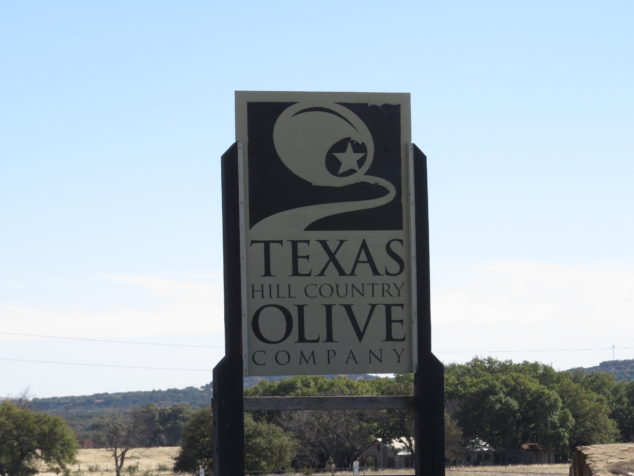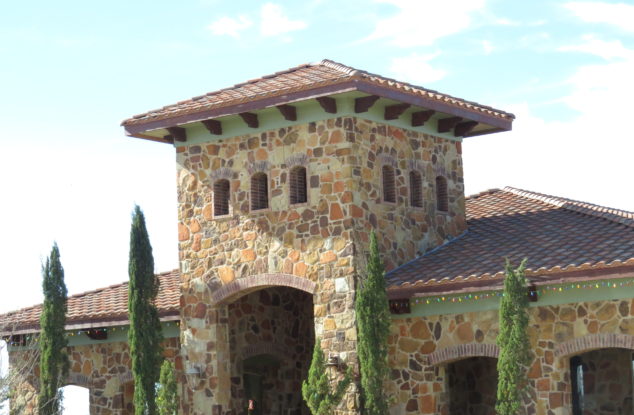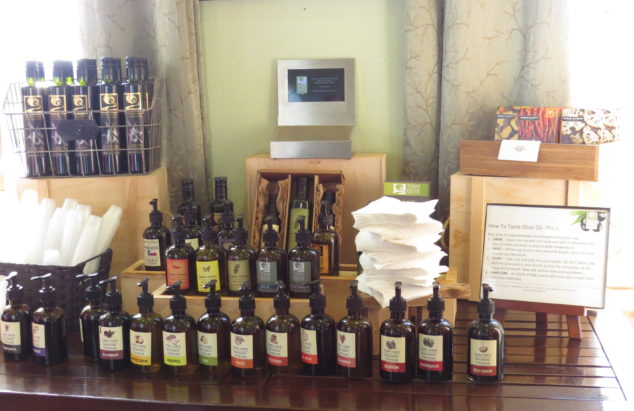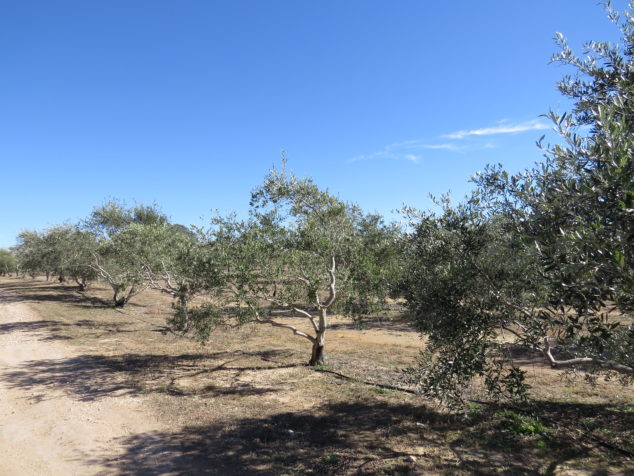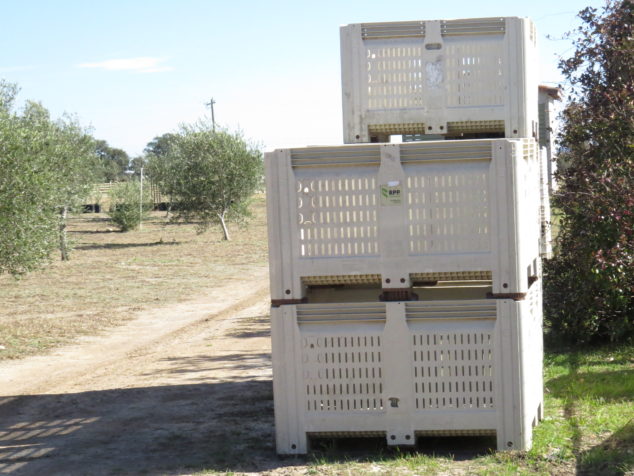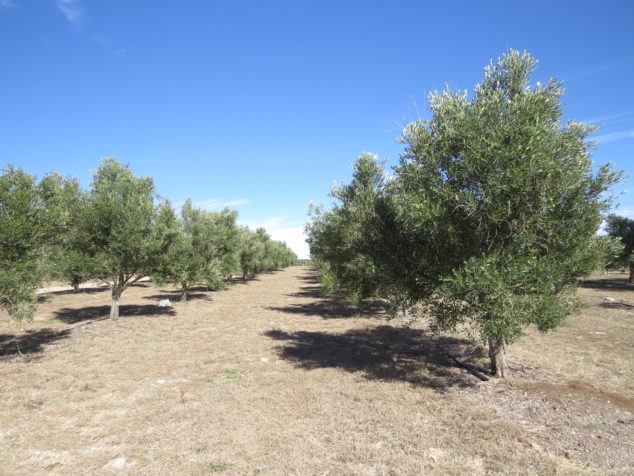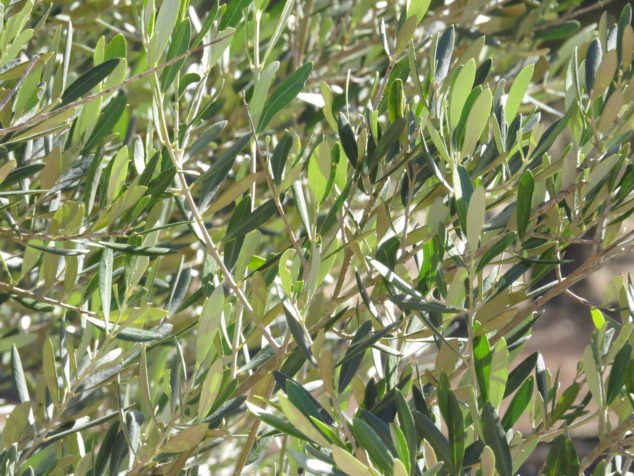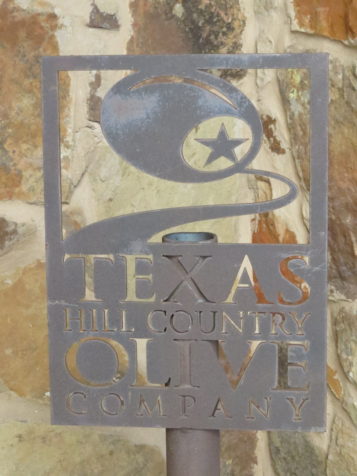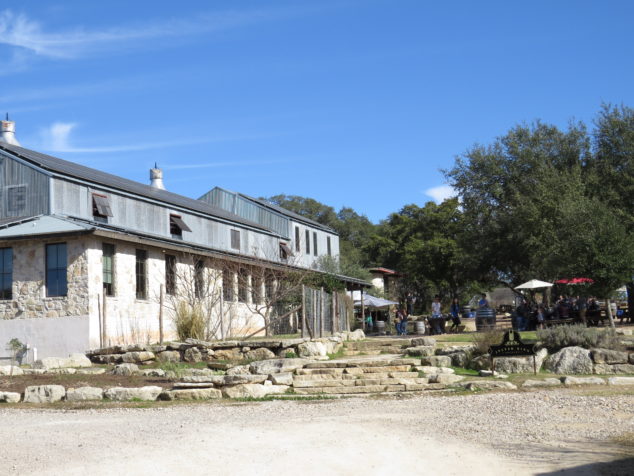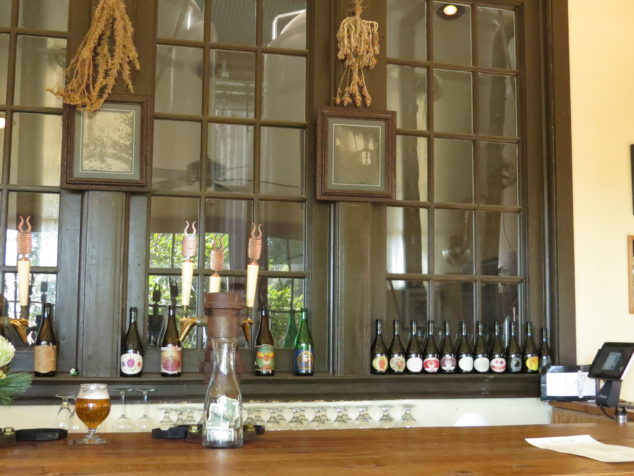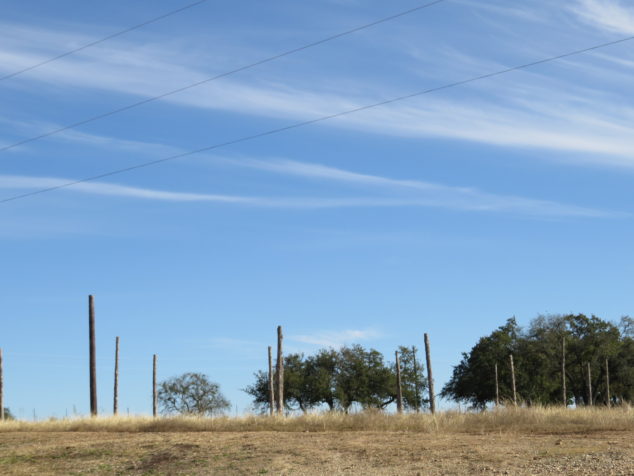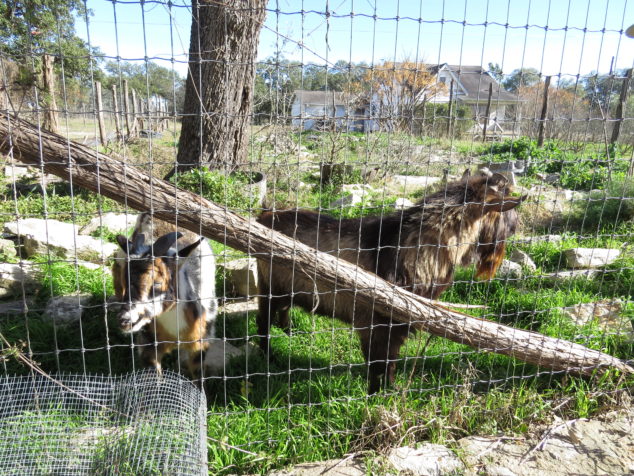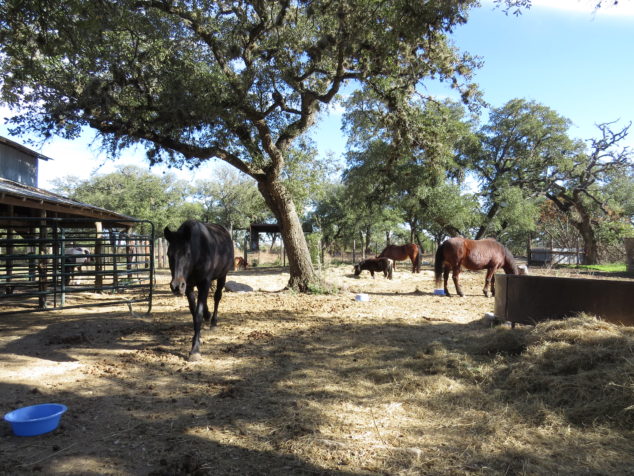As I’m writing this, it is ten below zero in Minnesota, and we are still cleaning up seven inches of snow from the past couple of days. So, it is with a look to the past and a look towards the future that I bring you this post about a very warm, sunny December day in the Hill Country of Texas. The word ‘cultivate’ is derived from a Latin word meaning ‘to care for.’ It means preparing the land to raise crops, promoting growth of a plant or crop by labor and attention, producing a product by culture, and developing or improving by education or training. All of these definitions were incorporated into our day. Twenty-six miles west of Austin is the Texas Hill Country Olive Company! I didn’t know olives grew in Texas! When we showed up for our morning tour (of which we were uncharacteristically the only ones!) we learned about the history of olives, the trees, the land, the processing, and of course, olive oil. This family-owned business began in 2008 on seventeen acres of land with perfect conditions for growing olives: the land is sloped for good drainage, the soil is alkaline from the limestone rocks, the windy weather helps with pollinating, and the climate is warm.
We entered the Italian villa-style building to friendly greetings and the delicious smell of freshly-baked bread. A small cafe occupied one side and a tasting room and gift shop the other. The manufacturing and bottling of the olive oil happens in the back of the building—a much smaller area than I would have guessed for processing all the olives from this orchard and a much larger orchard in southern Texas.
Table olives and oil olives come from different varieties of Olive trees, and olive oil has different tastes and notes depending on the variety and the processing. We were instructed to drink a small amount of five types of olive oil to discern the differences. Each gave me a tickle in the back of my throat and some made me cough—which I found out was a good thing in the world of quality olive oil! The most surprising one had an aftertaste of bananas! They also had an amazing array of balsamic vinegars that we tasted on chunks of bread—so good!
Olive trees, called the tree of eternity, grow slowly and have been cultivated for over 6,000 years. There are many sacred connotations of the Olive in the Bible, and victors of Olympic games in ancient Greece were awarded a crown of olive branches. The Olive branch is a symbol of peace and an offer of reconciliation.
When the fruit is fully mature, nets are put under the tree, and the fruit is gently raked off the branches, then put into these crates. The fruit is too bitter to be eaten off the tree. Processing takes place quickly after harvest. Olives for oil and black table olives are dark purplish-black when mature and harvested, but table olives can be picked when immature, while they are still green. All have to be cured before eating.
Olive trees are evergreen with leathery gray-green leaves, silvery on the underside, and can live for several hundred years. They bloom in late spring with small, white flower clusters. A tree must be fifteen to twenty years old to produce a worthwhile crop, and some will produce for hundreds of years.
Peace puts forth her olive everywhere. –William Shakespeare
After our Olive Company tour and tasting, we rested on the veranda in the warm sun and breeze, watching the wispy clouds and talked about the next stop of our day—the brewery.
Just down the road from the Olive Company is Jester King Brewery. The limestone and tin buildings, the Live Oak trees, and the limestone walls and paths evoke a farmplace feel, and in fact, they call themselves a Farmhouse Brewery. Their farmhouse ales are a ‘product of the land,’ unique to the time of year, the plants used, and even the people who work there. They use foraged plants, local fruits and vegetables, native yeasts and bacteria, well water, and local grains. The setting at the Brewery was like we were at a backyard gathering—picnic tables under the Oak trees, yard games, live music, wood-fired pizzas and beer, kids, dogs, and grandmas.
The people of Jester King Brewery embody the word ‘cultivate.’ On their 165 acres, they are working the land to grow raspberries, grapes, hops (the tall poles below is where the hops will grow), and other crops to use for their beers. They promote natural improvement of soil using cover crops and a fertilizer ‘tea’ made from old bones, aged molasses, goat manure, and beer. They culture their sour beers with airborne yeast and bacteria or cultured wild yeast and bacteria from local plants. They give brewery and farm tours to share their knowledge and passion for producing beer in an organic and unique way.
We had such an interesting day learning about the cultivation of olives and beer-making crops and the process of making olive oil and farmhouse ales. It was evident how both family-run businesses cared deeply for the land, the trees and crops, the process by which they produced their product, and the experience of the people who came to share in their livelihood. It was a labor of love and love of the labor and attention to their craft. Both places were peaceful, where we felt at home in their world, where time slowed and worries melted away. An oasis of sorts, where we were away from the news of the day, the rancor of them vs us, and the ever-present, pervasive pull of the screen. So what kind of place do we cultivate in our day-to-day lives? What do we care for? What do we give our labor and attention to? How do we promote growth and development of ourselves and others? What kind of culture is fermenting in our hearts? How do we promote peace? We each have the responsibility to cultivate our own lives and to be in community with those around us. What does the farmplace of your life look and feel like?
